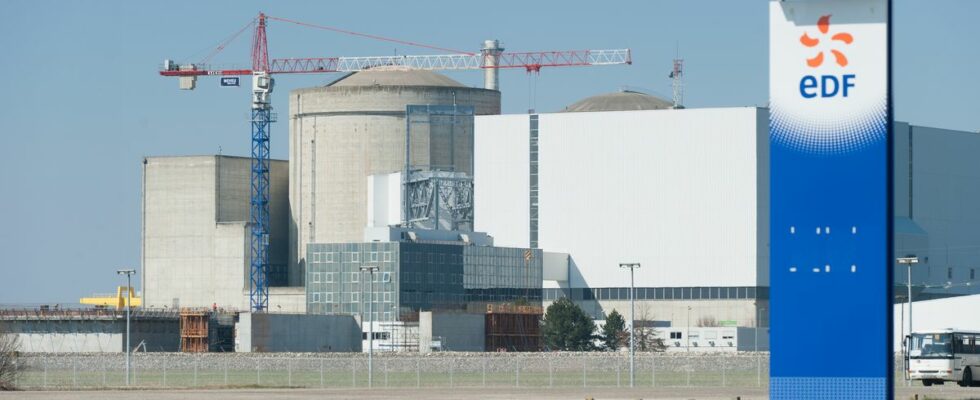Part of the French nuclear fleet will remain shut down this winter: EDF has announced in recent days the impossibility of restarting two other reactors and six will have to be shut down in 2023 for repairs linked to corrosion problems. In an information note published on Friday, the French nuclear manager announced the systematic replacement of the pipes of the category of reactors most exposed to these risks of corrosion, on emergency pipes used to cool the reactor in the event of an emergency. . These reactors must be shut down for the duration of the work.
Of these six 1,300 megawatt (MW) reactors, “as we are pretty sure to find things [traces de corrosion, N.D.L.R.], we go directly to the works, ”explained an EDF spokesperson on Monday. Friday two other delays were announced, including the return to service of Penly 1 on March 20, two months later than expected, for the same reason: the preventive replacement of a portion of piping threatened with cracks.
40 out of 56 nuclear reactors are operating
The winter of 2022-2023 was already the most tense in terms of electricity supply, with a nuclear fleet concerned by numerous maintenance operations but also affected by these corrosion phenomena discovered or suspected on an increasing part of the power plants. Never before had EDF produced so little nuclear electricity in its history, forcing France to import record volumes of electricity from neighboring countries. On Friday, 40 nuclear reactors out of the 56 in France were in operation.
After the new repair announcements, the Golfech 1 (Tarn-et-Garonne) and Penly 2 (Seine-Maritime) reactors will only be able to restart on June 11, when they were to return to service on February 18 and January 29, respectively, which would have covered the end of winter.
As for the 12 1,300 MW reactors known as the “P’4” type, EDF has decided to “adapt its strategy” by announcing “preventive” repairs, without even going through the examination stage, which implies a shutdown 160 days, the spokesperson explained. Of these twelve reactors, one has already been repaired and the other five are in operation. There will therefore remain six to be repaired automatically during the year 2023, while EDF has so far only provided for checks there at first.
According to the spokesman, there will be no overall production “lower than expected” so far, the smaller 900 MW reactors, the bulk of the fleet, being “likely less affected” by stress corrosion (SC) phenomena.

